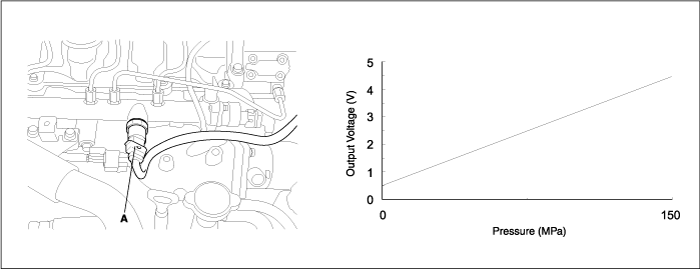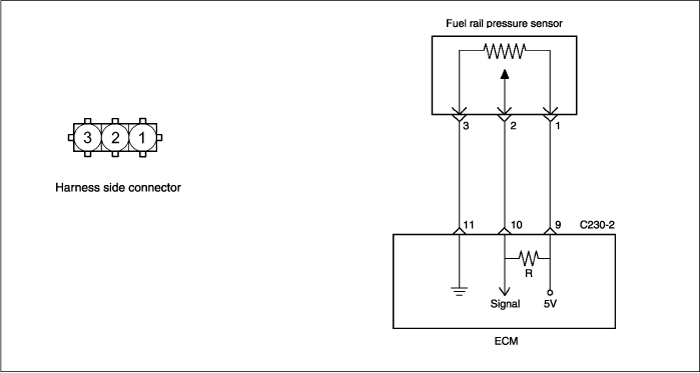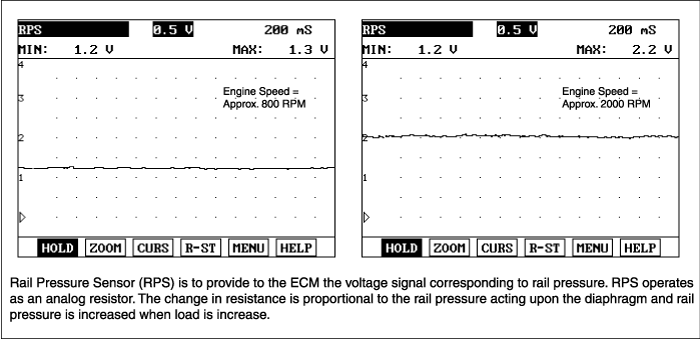
DTC | P0191 | Fuel rail pressure sensor circuit range/performance |
P0192 | Fuel rail pressure sensor circuit low input | |
P0193 | Fuel rail pressure sensor circuit high input | |
P0194 | Fuel rail pressure sensor circuit intermittent |

The aim of the Rail Pressure Sensor (RPS, A) is to provide to the ECM the voltage signal corresponding to fuel pressure in the rail. This information is used for fueling and timing calculation. The sensor element (semiconductor device) for converting the pressure to an electric signal is mounted on the diaphragm. The sensor operates as an analog resistor. The change in resistance is proportional to the rail pressure acting upon this diaphragm. A rail pressure change lead to a geometry change. This movement changes the electrical resistance. A bridge circuit on the diaphragm supplies a voltage that is amplified to a range from 0.5 V to 4.5 V. (respectively 0 and 1500 bar).
DTC No | Detecting Condition & Limp Home | Suspect area |
P0191 P0192 P0193 P0194 | Detecting Condition P0191 : The supply voltage < 0.3V ro > 1.2V (after 2.5 seconds have passed since a cranking-off and PRM=0) P0192 : The sensor voltage < 0.18V P0193 : The supply voltage > 4.9V P0194 : The supply voltage < 4.7V or > 5.1V - In this case, P1524/ P1525(Sensor Supply 2 Voltage Malfunction) or P0224(Throttle/pedal position B circuit intermittent) is detected together. Enable Condition - Engine state : cranking-off (P0191) - Engine state : running (P0192/P0193/P0194) Limp Home Fuel quantity limitation | - Open or short in RPS circuit - RPS - ECM |
RPS | Normal Parameter | |
Engine idle state after engine warming up | Fully open position | |
Signal Voltage | Below 1.7V | Approx. 4.5V |
Rail Pressure | 220 ~ 320 bar (22 ∼32 Mpa) | 1500 bar (150 Mpa) |


















Proceed with ECM problem procedure. |